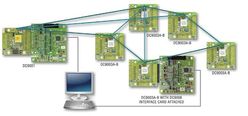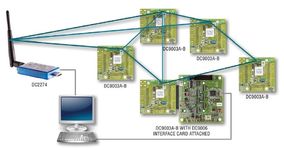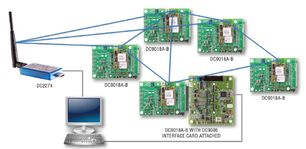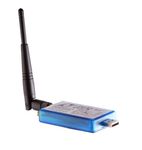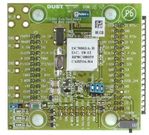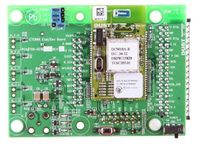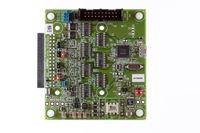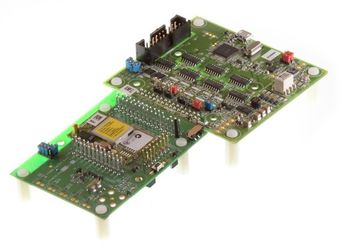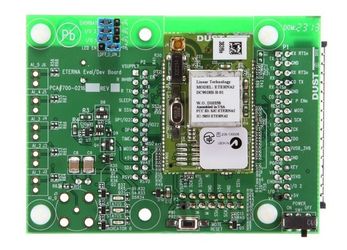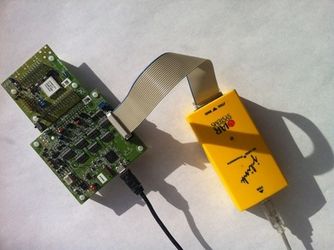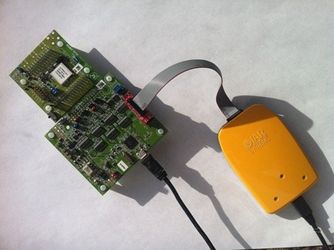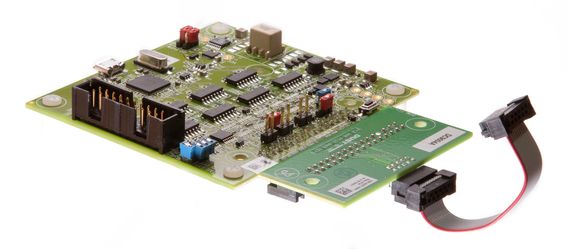Required Hardware
At a minimum you will need a mote and way to get your software onto it. This guide assumes that you are using a
SmartMesh IP Starter Kit
. TheOn-Chip Software Development Kit
supports all LTC5800 based products, so you can develop and run your application on any of the SmartMesh IP products (LTC5800 chip, LTP59xx motes, and demo boards) listed on this page.SmartMesh IP Starter Kits
During development of your
On-Chip Software Development Kit
application, we recommend you use aSmartMesh IP Starter Kit
. TheSmartMesh IP Starter Kit
allows you to build a working mesh network and develop applications on the SmartMesh IP mote.A
SmartMesh IP Starter Kit
is composed of:- 1 SmartMesh IP manager (several boards exist, see below)
- 5 SmatMesh IP motes (several boards exist, see below)
- 1 additional USB interface boards to interface a SmartMesh IP mote to your computer.
Each of the boards included in a
SmartMesh IP Starter Kit
are also sold separately.
Several
SmartMesh IP Starter Kit
s are available:| Kit | DC9000A | DC9000B | DC9021A |
|---|---|---|---|
| Manager (qty. 1) | DC9001A (no longer available) | (formerly shipped with DC9001B) | (formerly shipped with DC9020A) |
| Mote (qty. 5) | DC9003A-B | DC9003A-B | DC9018A-B |
Interface | DC9006A | DC9006A | DC9006A |
maximum | 32 motes | 100 motes | 100 motes |
| Antenna | chip antenna | chip antenna | chip antenna |
| Note | RF certified |
SmartMesh IP Eval/Dev Motes
In addition, the following Eval/Dev boards (not included in any
SmartMesh IP Starter Kit
) are available:| Part | DC9020B | DC9018B-B |
|---|---|---|
| Description | SmartMesh IP Manager, 100 mote capacity | SmartMesh IP Mote |
| Antenna | MMCX antenna connector | MMCX antenna connector |
| Note | RF certified | RF certified |
SmartMesh IP Modules
The following modules are available, as is the QFN chip:
| Part | LTP5901-IPMAxxx#PBF | LTP5902-IPMAxxx#PBF |
|---|---|---|
| Form Factor | 66-pin castellated module | 66-pin castellated module |
| Antenna | chip antenna | MMCX antenna connector |
| Note | RF certified | RF certified |
SmartMesh IP Chip
| Part | LTC5800-IPM#PBF |
|---|---|
| Form Factor | single chip SOC |
| Packaging | QFN package |
Debug Probe (Optional)
The firmware you have compiled can be loaded onto the target device without requiring additional hardware, refer to the Programming Eterna Devices page for instructions.
However, you can optionally purchase a "debug probe" to do in-circuit debugging (breakpoints, variable inspection, etc.) using JTAG/SWD. You can use any JTAG/SWD debug probe for ARM-Cortex M3 supported by IAR. Use the 20-pin JTAG connector on the
.The pictures below illustrate the use of two popular debug probes:
Programming Adapter
The DC9004A Programming Adapter enables the DC9006A Interface card to connect to the recommended programming header (2x5 2mm pitch header) on a customer board to program an Eterna chip or PCB module or to communicate via CLI.
| DC9004A Programming Adapter |
|---|
